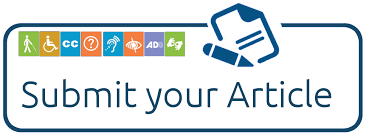THE CONCEPT OF HIGH QUALITY 21st CENTURY INDONESIAN HUMANS
Main Article Content
Dicky Apdillah*
Angela Ekklesia Siagian
Susih Gajah Manik
Lica Adila
The 21st century which is synonymous with the century of globalization has brought changes in all lines of life. The development of science and technology, especially communication technology, has made the world like an environment without distance even though in reality it is very far away. What is happening now in a matter of seconds can already be seen, heard in other parts of the world. This brought many changes in the concepts of human life. The concept of parenting, education, work, and fulfilling the needs of life has shifted a lot. This change must be realized and addressed wisely by the Indonesian nation and society, which cannot be separated from the influence of globalization. Changes in the conception of Indonesian people whose behavior was formed at the beginning of independence, the old order era, the new order and then the reform era need serious attention. The readiness of society and government to face 21st century globalization needs to be studied in depth. History proves that society's unpreparedness to face globalization has ultimately led to the proliferation of corruption, collusion and nepotism in Indonesia. Creating clean, transparent and professional Indonesian people is a must. This effort must be carried out by all components of the Indonesian nation, both state implementers. government officials from the center to the lowest, the community, the intellectuals and professionals in Indonesia. If this effort is not carried out immediately, the effort to form the concept of Indonesian human beings will only be an empty hope like building a house on the wind.
Apdillah, D., Salam, A., Tania, I., & Lubis, L. K. A. (2022). Optimizing Communication Ethics In The Digital Age. Journal Of Humanities, Social Sciences And Business (JHSSB), 1(3), 19–26.
Bungin, B. (2010). Sosiologi Komunikasi, Edisi Pertama, Cetakan ke-5 (1st ed., Vol. 5). Kencana .
Hidayat, U. S. (2021). Urgensi Penguatan Pendidikan Karakter Dalam Menyiapkan Generasi Emas 2045: Strategi Membangun Generasi Cerdas, Berkarakter dan Berdaya Saing di Abad 21. Nusa Putra Press.
Horton, P. B., & Chester, H. (2012). Sosiologi, Edisi Terjemahan, Cetakan ke-12. Erlangga .
Hutabarat, D. T. H., Salam, A., Zuwandana, A., al Azmi, C., Wijaya, C. R., Darnita, T. I., Lubis, L. K. A., Sitorus, M. A. P., Adawiyah, R., & Sinaga, R. (2022). Analysis Of The Implementation Of Law In Every Level Of Society In Indonesia. Policy, Law, Notary And Regulatory Issues (POLRI), 1(2), 9–14.
Kasali, R. (2018). Self Driving. Mizan.
Lubis, R. A., Sinaga, R., & Fauza, A. (2022). Adolescent Digital Literacy And Ethics. Social Sciences And Business (JHSSB), 1(3), 9–18.
Macionis, J. J. (2010). Society, The Basics, edisi terjemahan. PT Rajawali Pers.
Panduumat. (2011). Manusia Indonesia Abad 21 yang Berkualitas Tinggi Ditinjau Dari Sudut Pandang Psikologi. https://panduummat.wordpress.com/2011/03/16/manusia-indonesia-abad-21-yang-berkualitas-tinggi-ditinjau-dari-sudut-pandang-psikologi/
Poloma, M. (2010). Sosiologi Kontemporer, Cetakan ke 8. Jakarta: Pt RajaGrafindo Persada.
Siti Aminah, L., Arifin, W. E., & Dja’far, V. H. (2021). A Model Of Group Guidance To Enhance Student Resilience In The Covid-19 Era. Transformational Language, Literature, And Technology Overview In Learning (TRANSTOOL), 1(1), 1–8.
Sugiyono, D. (2013). Metode penelitian pendidikan pendekatan kuantitatif, kualitatif dan R&D.
Wirawan, S. (2012). Pengantar Psikologi Umum (3rd ed.). Rajawali Pers.
















